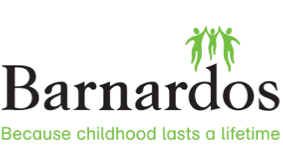Legal Aid & the Courts Service
How will I know that there is a Care Order Hearing for my child?
You will know that there is a Care Order for your child when you receive a letter informing you of your Care Order Court Date and/or are informed by a social worker that they are applying for a Care Order for your child.
How much notice do I get before a Care Order Hearing?
This depends on the type of Care Order and where the hearing will take place. Some counties’ courts only hold child care hearings a few times a month, whereas others hear child care cases every day, like in Dublin.
With emergency care orders, no notice period is required.
What should I do before a Care Order Hearing?
It is recommended that you seek legal representation before your Care Order Hearing.
This can be a private solicitor, or you can apply for Legal Aid.
More information on Legal Aid and how to apply for it can be found here.
What should I wear to a Care Order Hearing?
When attending court, you should try your best to look professional and respectful. Try to dress smart, wearing clothes that are neat and clean. Think of what you might wear for a job interview.
How can I prepare for a Care Order Hearing?
Transport
Make your travel arrangements in advance of your court date.
Find out where your Hearing will be and how to get there.
Arrange a taxi, lift, or suitable public transport.
You can find search for the locations of the different district courts here.
Timing
Make sure you are available on the day of your hearing. Book time off work if needed and arrange childcare if needed.
Arrive to court at least 30 minutes before the time mentioned in your hearing letter.
Arriving early can give you time to find your courtroom. You can also use this time to review the court reports with your solicitor.
Temper
This can be a difficult and stressful time. In court, parents can experience feelings of upset, worry, anger, or stress.
It is important to take care of your mental health during this time.
Barnardos provides a number of wellness resources by our Heart Body & Mind Team. It is recommended that you explore these in advance of your court date, and are able to use these if you start to feel any strong emotions when you go to court.
You can also try using sensory aids, such as fidget toys, or practice breathing exercises.
What is the ‘In Camera Rule’?
This applies to Family Law proceedings.
It means that the Hearing is private – members of the public or media cannot come in and watch the proceedings, and there is no jury.
The only people allowed in the court are the court staff, the families involved and their legal representatives, and any relevant witnesses.
Can I bring food or drink with me?
Food is usually not allowed in the courtroom. You may be allowed to bring a bottle of water with you.
Outside the courtroom, you can have snacks and drinks. You may be waiting a while for your hearing, so you may want to bring some food with you during this time.
Can I bring my phone with me?
Yes, you can bring your phone. However, you are not allowed to take any recordings, photos, or videos. It is also recommended that you keep your phone on silent or on Airplane Mode.
English is not my first language – what should I do?
You can hire your own interpreter, or ask the court to hire one for you.
I have additional needs with accessibility – what should I do?
Most courts should have facilities for a range of needs.
However, if you want to be sure, you can reach out and express any needs you may have. This can include wheelchair ramps, accessible toilets, and assistive hearing technologies, to name a few.
I am afraid for my safety and wellbeing – what should I do?
You can reach out to the court and express your fears. You may be allowed to sit somewhere more private, or provided with a screen so that other parties cannot see you.
How can I get in touch with the courts about additional needs or safety concerns?
You can find the contact details for the different district court offices here.
Get in touch
If you are a parent who’d like some support through childcare proceedings, freephone or email [email protected], the Parental Advocacy Service, delivered by Barnardos.
Our independent & confidential service is open to all parents of children in care.
1800 333 355.
